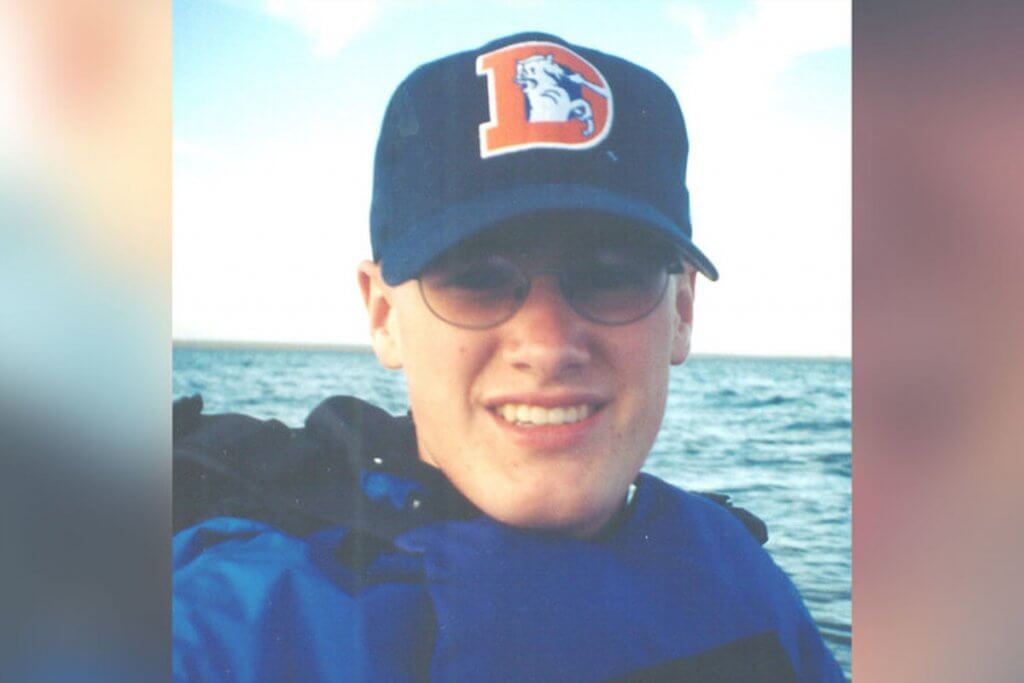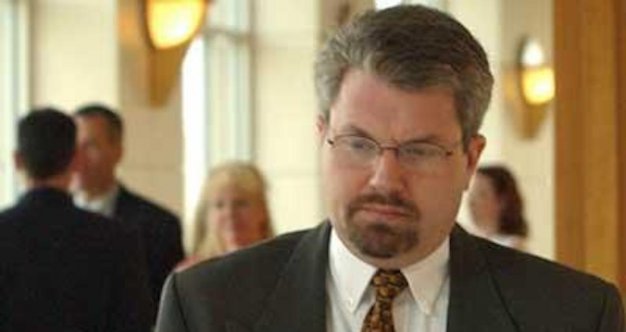Holistic Doctor Featured on “License To Kill” Sold Fake Cancer Cure Which Cost Two People Their Lives
Deadly Promises
- Brian O’Connell, director of a holistic facility, sold black salve paste by claiming it could cure cancer
- Two of his “patients” passed away after working with him for treatment.
- Studies have shown that nearly 40% of Americans believe alternative medicine can actually cure cancer, but people are more likely to die if they choose alternative therapies as opposed to conventional medicine.
A man in Colorado sold desperate families on a fake dream that turned out to be a nightmare. Brian O’Connell, a fake doctor featured on Oxygen’s License to Kill, claimed a black salve he sold cured cancer, but ended up costing two people their lives.
O’Connell was sentenced to 13 years in prison for selling a product made with photoluminescence and black salve, a popular alternative medicine treatment that has yet to be deemed credible. He served as the director of a holistic clinic, Mountain Area Naturopathic Associates in Wheat Ridge, Colorado.
Related: Facebook Finally Bans Groups Promoting Flesh-Eating Black Salve for Cancer
In 2002, Sean Flanagan, 18, was diagnosed with rare bone cancer Ewing Sarcoma, and despite going through treatments such as chemotherapy, radiation, and surgery, Sean was given up to six months to live. His family refused to accept the doctors’ opinion, and sought out an alternative that could possibly help him.

That’s when they met O’Connell, who gave Sean an alternative medicine called photoluminescence, an alternative medical procedure which claims to to cleanse the blood of toxins. Although this hasn’t been proven, O’Connell said it would oxygenate Sean’s blood. However, Sean’s health took a turn for the worse, and his skin turned grey, oxygen levels dropped drastically, and his body started shutting down. After 18 days of meeting O’Connell, Sean passed away.
After Sean’s passing, O’Connell continued his “practice.” Three months later, a 17-year-old girl was rushed to the emergency room after suffering a heart attack, and it turned out she was taking part in O’Connell’s photoluminescence treatment. Rory Gallegos, a 44-year old man who had been fighting colon cancer, was also rushed to the ER after treating his diagnosis with O’Connell’s black salve. After a few months of using the product, the cancer spread to his liver, and Gallegos passed away.
Black salve paste has been marketed over social media for years as a safe and effective for the treatment of more serious conditions, such as skin and breast cancer, but that couldn’t be less of the case. These products are made with zinc chloride or bloodroot extract, creating a corrosive agent capable of dissolving healthy and diseased tissue. The Food and Drug Administration (FDA) has banned selling black salve products to the public, and Facebook recently cracked down on online groups attempting to sell them as well.
Beware of Fake Cancer Cures
Despite experts constantly debunking fake cancer cure claims, the idea of “instant cancer killers” are still appealing to many Americans. A 2018 national survey from American Society of Clinical Oncology (ASCO) found that nearly 40% of Americans believe that alternative therapies can actually cure cancer, with the majority being younger adults. However, it’s important to note that this interest can be deadly. A study from Yale University, published by JAMA Oncology, found that people who choose to go through alternative therapies are more likely to die than those who undergo conventional treatment such as chemotherapy, radiation, and surgery.
Related: Val Kilmer Believed Faith Would Heal His Throat Cancer; His Daughter Pushed For Surgery
Dr. Jason Westin explains why alternative medicine is often not trustworthy
“When someone’s diagnosed with cancer they and their loved ones will get on the internet and try and find what’s the cure, [but] sadly, there is a lot of information on the internet that’s not well-curated and sounds great and perhaps too good to be true,” Dr. Jason Westin, leader of the diffuse large B-cell lymphoma research team at MD Anderson Cancer Center, tells SurvivorNet. “I would say, make sure, if you’re finding information on the internet about something that sounds too good to be true, talk to your doctor about it and see what they think before you try some alternative treatment that may cost a lot of money and may not give you the results that you want.”
Dr. Brian Berman explains the difference between alternative medicine and integrative medicine
Source: Survivornet. By: Shelby Black
Support families fighting financial toxicity of cancer – here
